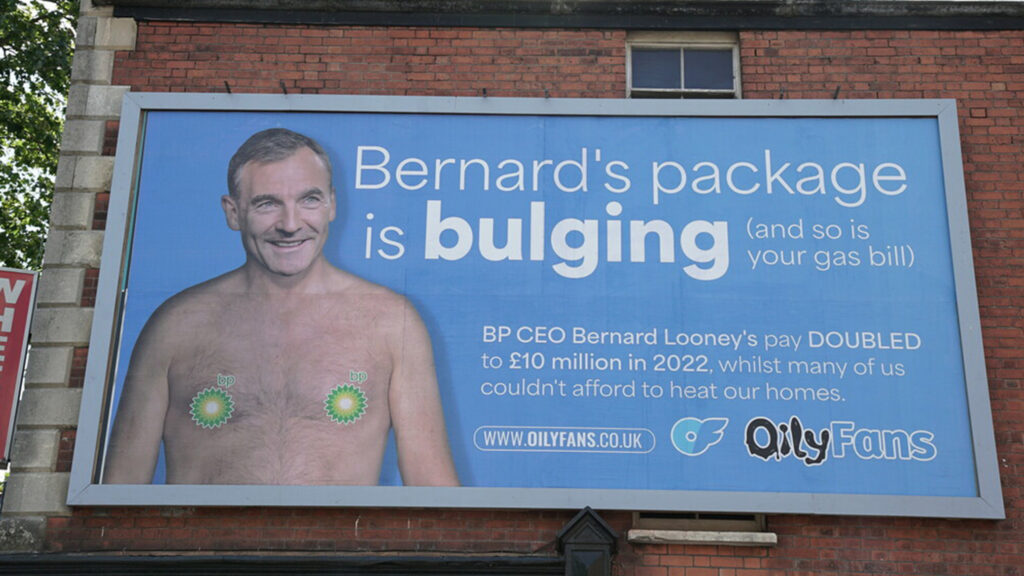A recent news story about a controversial OnlyFans billboard campaign has just been given a brilliant twist by a spoof advertisement that wants us to get equally disgusted about a BP boss’s swollen pay package.
Newspapers and websites in the UK had already picked up a story about model Eliza Rose Watson buying billboard space to promote her OnlyFans account, with many Londoners not happy about the saucy underwear shot and clear OnlyFans branding being so visible close to schools.
Campaign group Global Witness then bought three of Watson’s four ad spaces in Tottenham, Lambeth and Edgware and created a spoof ‘OilyFans’ advert to draw attention to BP CEO Bernard Looney’s insane 120 percent pay rise. BP reported a staggering profit of £23 billion ($30 billion) in 2022 and Looney’s already girthy pay package swelled from £4.5 to £10 million ($5.8 to $12.9 million), this at a time when soaring household gas prices meant many Brits couldn’t afford to turn their heating or stoves on.
Related: California Passes Law To Penalize Oil Companies Overcharging Customers At Gas Stations

Oil industry fatcats getting fatter, and other people complaining about it, is nothing new, but the genius move in this case was to draw our attention to it by sexing the story up by spinning an existing topic that had already got Brits standing to attention.
“The £10 million Bernard Looney took home last year would take the average UK worker 300 years to earn. This means, in a year when parents were sending their kids to school hungry and pensioners were riding the bus all day to stay warm, Bernard Looney was laughing all the way to the bank,” said Alice Harrison, fossil fuels campaign leader at Global Witness.
“Although light-hearted in nature, our action today is intended to highlight the very serious issue of an energy system that pays out to polluters and penalises ordinary people.”
In addition to criticising BP’s egregious profits Global Witness also wants to remind us that BP backpedaled on its emissions reduction targets, cutting its previous aim of reducing carbon emissions by 35-40 percent by 2030 to a 20-30 percent reduction by the end of the decade.







